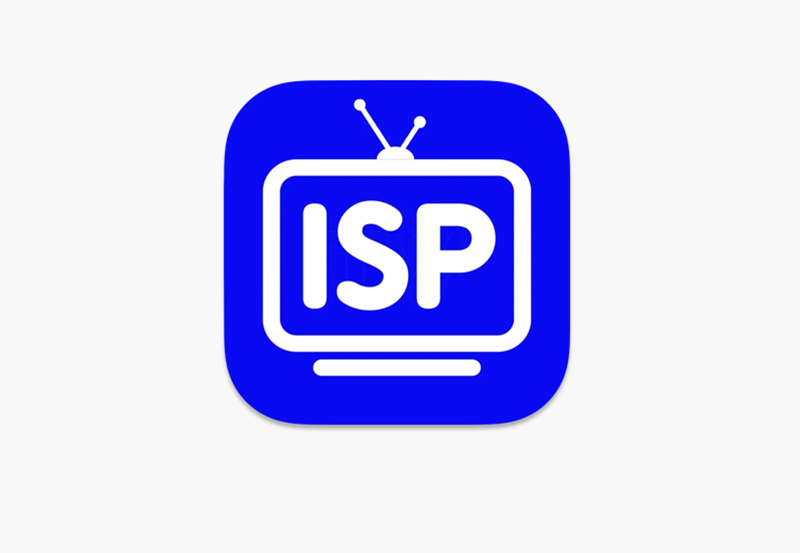Perfect Player IPTV is a versatile application that allows users to stream television channels and video content over the internet. It offers an appealing alternative to traditional cable, breaking boundaries with flexibility and accessibility. However, while its functionalities might seem straightforward, the legal landscape surrounding IPTV services can be complex.
For businesses looking to leverage Perfect Player IPTV, it’s crucial to be aware of the potential legal implications. This understanding helps avoid unnecessary legal pitfalls and ensures compliance with international broadcasting regulations. Let’s explore how these challenges impact users and how to navigate them effectively.
Why Perfect Player IPTV is Popular
There are several reasons why Perfect Player IPTV has gained popularity among users worldwide. Key among these is its capacity to stream an impressive range of content. Customers can enjoy films, sports, and more through customizable playlists and seamless integration with various media formats.
Smart Insight:
Catch every live game with IPTV for sports streaming that ensures you never miss a moment.
Moreover, the application offers an intuitive user interface, making it accessible even to non-tech-savvy individuals. However, it’s essential to balance this accessibility with a thorough understanding of legal responsibilities. Businesses opting for IPTV should consider securing licenses for all third-party content distributed via their services.
What Makes IPTV Attractive for International Channels
One significant attraction of IPTV, specifically Perfect Player IPTV, is its ability to host international channels. This feature allows users to experience global content, crossing geographical limitations effortlessly. However, offering international content carries its own legal hurdles.
Engaging with IPTV for international channels requires businesses to adhere to various jurisdictional copyright laws. Failure to comply can result in legal repercussions ranging from fines to stringent penalties.
The Legal Terrain: Navigating IPTV Laws
Legal regulations in the IPTV industry are designed primarily to protect intellectual property rights. These laws vary significantly from one jurisdiction to another, making it essential for businesses to understand regional legal frameworks pertaining to IPTV. A crucial aspect is securing the appropriate licensing agreements for all content streamed.
While leveraging IPTV can redefine your IPTV watching experience, it demands vigilance and compliance with applicable laws to prevent potential legal actions.
Copyright Infringement: A Major Concern
The ease of access to a variety of content can tempt businesses toward questionable practices, leading to copyright infringement issues. It’s vital to acknowledge that any unauthorized distribution of copyrighted content is illegal and can attract severe penalties.
To mitigate these risks, companies should establish robust systems for ensuring all content streamed through Smarters IPTV platforms is appropriately licensed. Regular audits of content libraries can help maintain compliance.
Licensing and Distribution Agreements
Licensing agreements serve as a legal bridge, allowing businesses to distribute third-party content through their IPTV services. These agreements stipulate the terms under which the content can be accessed and broadcasted.
In many cases, securing distribution agreements with content owners can be a cost-intensive process. However, the security and legal peace of mind they offer are invaluable in maintaining a compliant service.
Elements of a Good Licensing Agreement
- Explicit permission for the use and distribution of content.
- Clearly defined territories and duration of the license.
- Terms concerning quality control and adherence to broadcasting standards.
- Financial terms, including royalty calculations and payment schedules.
The Compliance Landscape: How to Align Your IPTV Service
While understanding the legality of IPTV is crucial, maintaining compliance involves several proactive strategies. Creating a comprehensive compliance checklist can guide businesses in aligning their operations with relevant laws, effectively reducing the risk of legal action.
Implementing Strong Anti-Piracy Measures
Software providers and businesses alike need to prioritize anti-piracy measures. These include using watermarking technologies, regular audits, and deploying encryption methods to safeguard content. More often than not, consumers are unaware of the potential legal breaches they might commit by accessing pirated content.
Encouraging awareness about the legalities of content consumption can empower customers to make informed choices, benefiting both the user and service provider. This awareness forms part of a holistic strategy to reduce piracy risks associated with IPTV use.
Data Privacy and Security Measures
With IPTV platforms handling a multitude of consumer data, securing this information is paramount. Implementing GDPR-compliant policies ensures that user information is handled with utmost care. Breaches in data security not only result in legal concerns but also impact consumer trust significantly.
Adopting stringent cybersecurity measures—such as firewalls, constant monitoring, and encryption—is vital to protect consumer data. Consequently, this also helps reinforce compliance with data protection laws.
Adapting to Regional Differences in IPTV Regulations
Navigating IPTV’s regulatory landscape requires acknowledging and adapting to the diversity of legal stipulations across different regions. While the use of Smarters IPTV continues to grow globally, service offerings must align with each area’s legal expectations.
Europe’s Approach to IPTV Regulation
In Europe, IPTV regulation is tightly bound to the European Union’s digital single market strategy. This framework encourages the fair and transparent distribution of digital services while promoting innovation and competition within the market.
Businesses looking to deploy IPTV services in Europe must comply with well-outlined EU directives, such as the Audiovisual Media Services Directive (AVMSD), which mandates broadcasting standards and protects consumer interests.
IPTV in the North American Context
North America presents a unique set of regulations influenced by both the United States and Canada’s individual legal environments. IPTV services must navigate varied copyright laws in these regions, requiring a nuanced understanding of national legislations.
For example, in the US, IPTV service providers must adhere to the principles stipulated by the Digital Millennium Copyright Act (DMCA), whereas Canadian providers must ensure compliance with the Canadian Radio-television and Telecommunications Commission (CRTC) standards.
Emerging Markets: Opportunities and Challenges
While major markets offer extensive regulatory guidelines, emerging markets present businesses with both opportunities and challenges. Here, the appeal of IPTV lies in the relatively flexible legal environments that allow for swift adaptation and deployment.
However, businesses venturing into these markets face the challenge of navigating evolving legal frameworks that may be less consistent than in more established markets. The key is continuous monitoring of legislative changes and adapting business practices accordingly.
Staying Ahead: Legal Trends in the IPTV Sector
The IPTV industry’s rapid evolution is heavily influenced by legal trends. Innovations such as AI-driven content distribution are becoming standard, demanding equally dynamic legal adaptations. Staying ahead of these developments enhances competitive advantage while ensuring legal compliance.
How Technology Influences IPTV Legislation
Technological advancements have a significant impact on shaping legislation. With the rise of features like interactive content and personalized viewing experiences, legal systems steadily evolve to address such innovations.
Regulating bodies are continuously updating legal frameworks to protect consumer rights while encouraging technological progress within the IPTV sector. Anticipating these changes allows businesses to future-proof their practices and maintain compliant operations.
Collaboration for a Legally Sound IPTV Future
Effective collaboration between technology providers, legal experts, and businesses is key to a sustainable IPTV industry. By forming alliances, stakeholders can forge comprehensive strategies that address emerging legal challenges while fostering innovation.
This collaborative effort is crucial in balancing consumer needs with regulatory demands, ultimately shaping a resilient digital streaming ecosystem.
FAQ: Common Queries Regarding IPTV and Legal Considerations

What is IPTV and how does it differ from traditional TV?
IPTV, or Internet Protocol Television, delivers TV content over the internet rather than through traditional cable or satellite formats. This technology allows for greater flexibility in accessing content across a variety of devices and platforms.
Are there specific licenses required for streaming international channels?
Yes, streaming international channels involves obtaining licenses that permit the redistribution of content across different jurisdictions. Each region may have unique requirements, making it essential to engage in thorough legal research before broadcast.
How can businesses protect themselves from IPTV-related legal issues?
Businesses can safeguard themselves by securing comprehensive licensing agreements and adhering strictly to copyright laws. Ongoing monitoring and compliance audits further reinforce legal standing and reduce infringement risks.
What steps can consumers take to ensure legal IPTV use?
Consumers should opt for reputable IPTV providers that adhere to licensing standards and offer transparency about how content is acquired and distributed. Staying informed about the provider’s legal compliance is crucial for responsible IPTV consumption.
How are different regions regulating the use of IPTV?
Regulatory approaches to IPTV vary greatly by region, often influenced by local copyright laws and digital broadcasting standards. Keeping abreast of these regulations, especially when operating across multiple areas, is imperative for lawful service provision.
Can businesses benefit from IPTV’s technological advancements without legal concerns?
Businesses can indeed capitalize on advances in IPTV technology by aligning their operational and compliance frameworks with current legal standards. Proactively adopting legal innovations and embracing regulatory changes ensures a harmonious blend of technology and legality.
What is IPTV? A Beginner’s Guide





